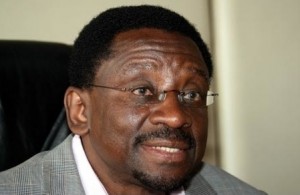Business Daily | 4 February 2010
By JIM ONYANGO
The government seeks to create a land bank which businesses and investors can tap into and has sent out a second appeal to Kenyans to offer their property for sale.
The move follows investors’ growing appetite for land to build houses, warehouses and put up businesses.
Gulf states and governments in Asia are leading the search for arable land in parts of Africa to grow food as the prices of agricultural commodities rise globally.
Madagascar mid last year cancelled a deal that gave South Korea firm, Daewoo Logistics, vast land to grow food crops.
But Kenya’s plan for an aggressive land buying scheme started by the Ministry of Lands last October to open up space for investments has not moved off the ground following the ministry’s failure to release nearly Sh1.5 billion to pay land owners who want to sell.
This means that investors will wait much longer for the ministry to finalise the deals.
The ministry announced the second phase of the land buying programme last week, saying there was rising demand.
Ministry officials say they received many applications from land owners intending to sell their plots in October and November last year but the purchase process had been delayed by a committee established to vet the properties.
“I can confirm to you that we have not purchased any land from the applicants. No money has been paid to any of the land owners,” said a senior official at the ministry who declined to be named, citing “the sensitivity of the matter .”
The land buying scheme targets idle land measuring more than 100 acres but the delay in vetting the actual purchase of the land is causing concern among investors.
But analysts warn that investors should not count on the promise to create a land bank until the government releases money for the exercise.
“The government moves slowly when it comes to releasing funds,” says Mr Joseph Muli-Kalava, an international trade and investment consultant.
Real estate developers say the cost of land in Nairobi is rising first and could eventually make owning homes an uphill task for the middle class as the country experiences an increased demand for land for human settlement, public projects and investments.
The State, however, says it has stepped up the drive to buy idle land , hoping to snap up vast fallow land across the Rift Valley and Coast provinces and towns near Nairobi.
Investors from the Gulf States have also shown interest in land at the coast.
In 2008, the Qatar government wanted to lease 40,000 hectares in Tana River for agriculture for US$2.5 from the Kenya government and to build a second deep-water port in Mombasa.
The project stalled after a section of the civil society and residents opposed it.
The Ministry of Lands is preparing a 50 -year national spatial plan— a key strategic planning document to direct and manage urban and rural growth and change by influencing the distribution of people across the country and also guide land use in parts of the country.
The director of physical planning in the ministry, Mr Njiru Nthiga , says it is aimed at making Kenya competitive in attracting foreign investments.
“Nationally, the plan will facilitate sustainable use of our resources, development that is equitably spread across geographical regions. It will form a foundation for sectoral plans such as the proposed 50 year integrated transport master plan and master plan for agriculture,” says Mr Nthiga in a newspaper advertisement.













